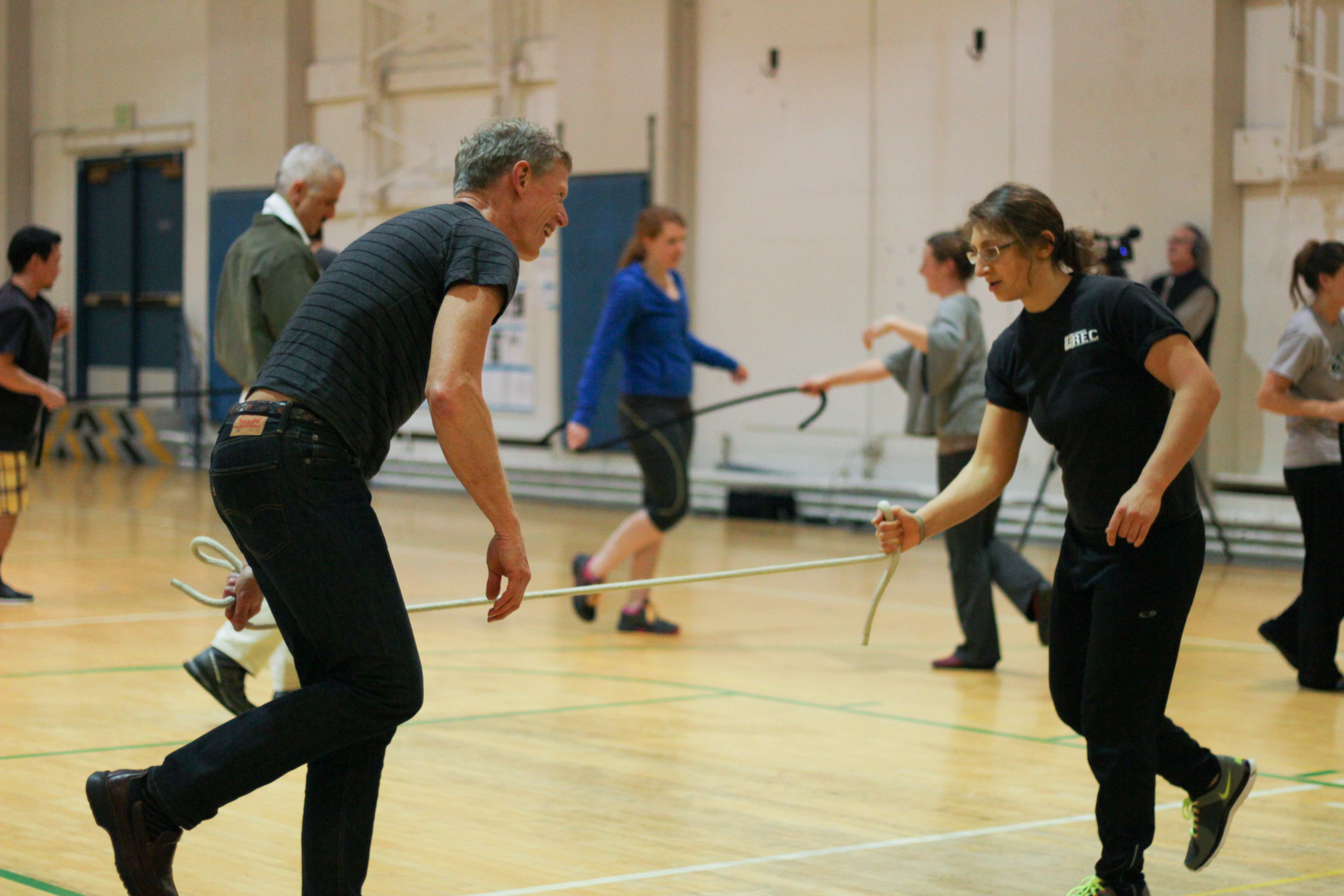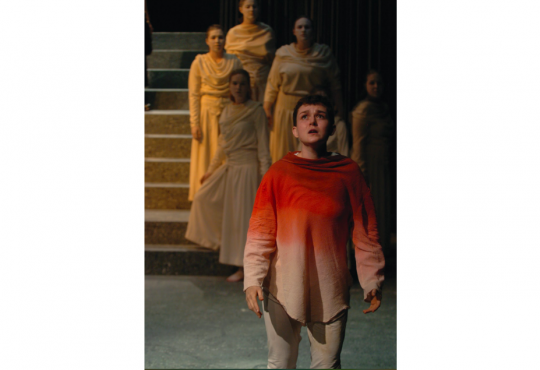
“Work comes before play” says the age-old expression, citing the importance of discipline before relaxation. For many, this saying has been heard a thousand times over—from parents, teachers and many other figures of guidance.
However, for Frank Forencich and his Seattle-based health leadership organization, The Exuberant Animal, “work” and “play” do not have to be exclusive activities.
“Play is a human universal,” Forencich said. “[It] is an original form of learning… it’s wired into our brain.”
In this sentiment, Forencich refers to the main goal of his organization: to introduce a type of training that does not simply encourage exercise, but says that exercise should come naturally to humans and that exercise should be engaged in a play state rather than work state.
During Forencich’s lecture at Puget Sound on March 4, he spoke earnestly and enthusiastically about the background and development of his vision and philosophy. Forencich, who has participated in both martial arts and rock climbing throughout the past 30 years, began his lecture by explaining the neurological science behind intellect and specialization.
Firstly, he described the idea of “fixed intellect/talent” or neurofatalism, which is based on the premise that brain cells cannot be regenerated; rather, they can only die. This is a more biological view on the idea that intelligence is a fixed amount, a view that has been shared by many people.
After decades of research, however, the discoveries of neuroplasticity, “cells that fire together wire together”, and neurogenesis, the concept that we can grow new brain cells, challenged this idea of fixed intellect and thus the way we think about intelligence as a whole.
Forencich emphasized that repetition, especially high quality repetition paired with precision, stability, focused attention and desire, is key in developing specialization and carving neural ruts in your brain. However, carving ruts too deep, he warned, can be a dangerous path to overspecialization. This danger is why he also presented the idea of the “adapted versus adaptable”—rather than becoming too specialized, we constantly need to adapt ourselves to new stimulus—a notion commonly recognized among high-performance athletes.
With this concept in mind, he introduced the idea that play is important. In the world of mammals, play is universal—all mammals do it to some extent.
He brought up pictures of dogs playing with polar bears to emphasize this point: despite their difference in size, native land of origin and the carnivorous nature of both animals, they both showed typical signs of play and engaged each other in a friendly manner.
He brought up other examples of play in the mammalian world, such as dogs taking turns chasing one another and bigger dogs lower the intensity of play for smaller dogs—this is exercise for most dogs: exercise in a “play” state of mind.
“We think with our entire body,” Forencich said. “The body is an open system, we absorb every experience… [it is] a sensory organ.”
The second part of Forencich’s lecture brought the audience to the upper part of the Memorial Fieldhouse in order to engage in some play of their own.
The play, or rather exercise in a play state, began with low intensity activities that encouraged basic movements and activity. Participants, while standing in a circle, were instructed to swing their arms back and forth in the air, at first standing on two feet then progressing to a single foot.
At this point in the activity, participants, both previously acquainted and unacquainted, began to laugh and giggle. Yet as the activities progressed, participants found themselves letting go of their initial nervousness and self-consciousness.
The next activity involved participants standing in two lines several feet apart. Facing one another, Forencich instructed them to “cross the street” towards each other, the only rule being “don’t crash!” They were next instructed to carry an invisible sword, swinging at each other in a friendly way like children on a playground.
These activities continued, ranging from a one-on-one tug-of-war to tossing a medicine ball through a moving hoop, until participants became exhausted—not only from the dance-like movements of the activities, but also from the bounty of incessant laughing and cheek-to-cheek grins.
In this way, Forencich was able to demonstrate the type of training that he and The Exuberant Animal strive to achieve: a confluence of work and play—or rather, exercise in a play state.
Not only were participants able to exercise their bodies, but “play contributes to the nervous system… and causes creativity,” Forencich said.
Almost every activity involved participants coming into physical contact with one another, and, even though some had never met each other before, they easily broke the ice and were able to interact in a friendly and, of course, playful manner.
In the end, Forencich was able to demonstrate the importance of play in not only physical development, but also mental development.
He strongly emphasized the idea that each exercise should have meaning and that contrast is incredibly important: when you work, give it your all; but when you rest, rest very deeply.
He applied this to every person and everyday life, but “especially the student population”; finding this balance has always been a challenge for students, and one that he may finally have found a solution to.

